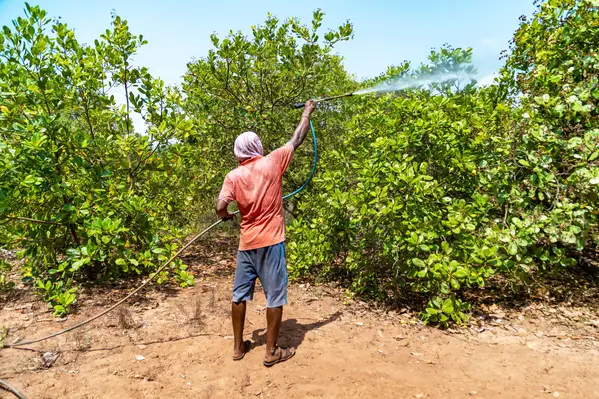The Food and Agriculture Organisation of the United Nations (FAO) joined hands with the Swedish Chemicals Agency (KEMI) to support Zimbabwe and Zambia to reduce risks of Highly Hazardous Pesticides (HHPs) through a peer learning & exchange workshop between pesticide regulators from Zambia and Zimbabwe, that was held in Harare from 8-9 May this year
Around 14 pesticide regulators attended the workshop. As part of the workshop the delegates compared lists of identified HHPs, shared experiences of pesticide risk and needs assessment for HHPs and jointly identified viable alternatives. The engagement culminated in the development of draft risk mitigation plans, and information exchange on the status of HHP identification and needs assessment in Zambia and Zimbabwe. The pesticide regulators also compared the status and gaps in their respective pesticide regulatory frameworks.
To limit the impacts of HHPs on human health and the environment, FAO and WHO developed the ‘International Guidelines on Highly Hazardous Pesticides to provide Governments and other stakeholders with stepwise guidance on HHP risk reduction.’
According to FAO Agricultural Officer, Ivy Saunyama, the HHP Guidelines recommend a clear step wise approach for HHP risk reduction, which Zambia and Zimbabwe have both followed.
The regulators from both countries highlighted that it was possible to increase agricultural productivity with limited use of HHPs by promotion alternatives, with emphasis on the use of less hazardous alternatives, Integrated Pest Management (IPM) practices that preserve ecosystem, product management measures to enhance proper use and risk reduction, like training farmers in proper use, ensuring availability and use of PPE, precautionary label statements.
“Feeding the two nations without the use of highly hazardous pesticides is possible if we work together,” said Daisy Ndlovu, environmental health officer at National Institute of Health Research (NIHR), Zimbabwe. “It is good that the governments of Zimbabwe and Zambia have already started working together to phase out HHPs.”





